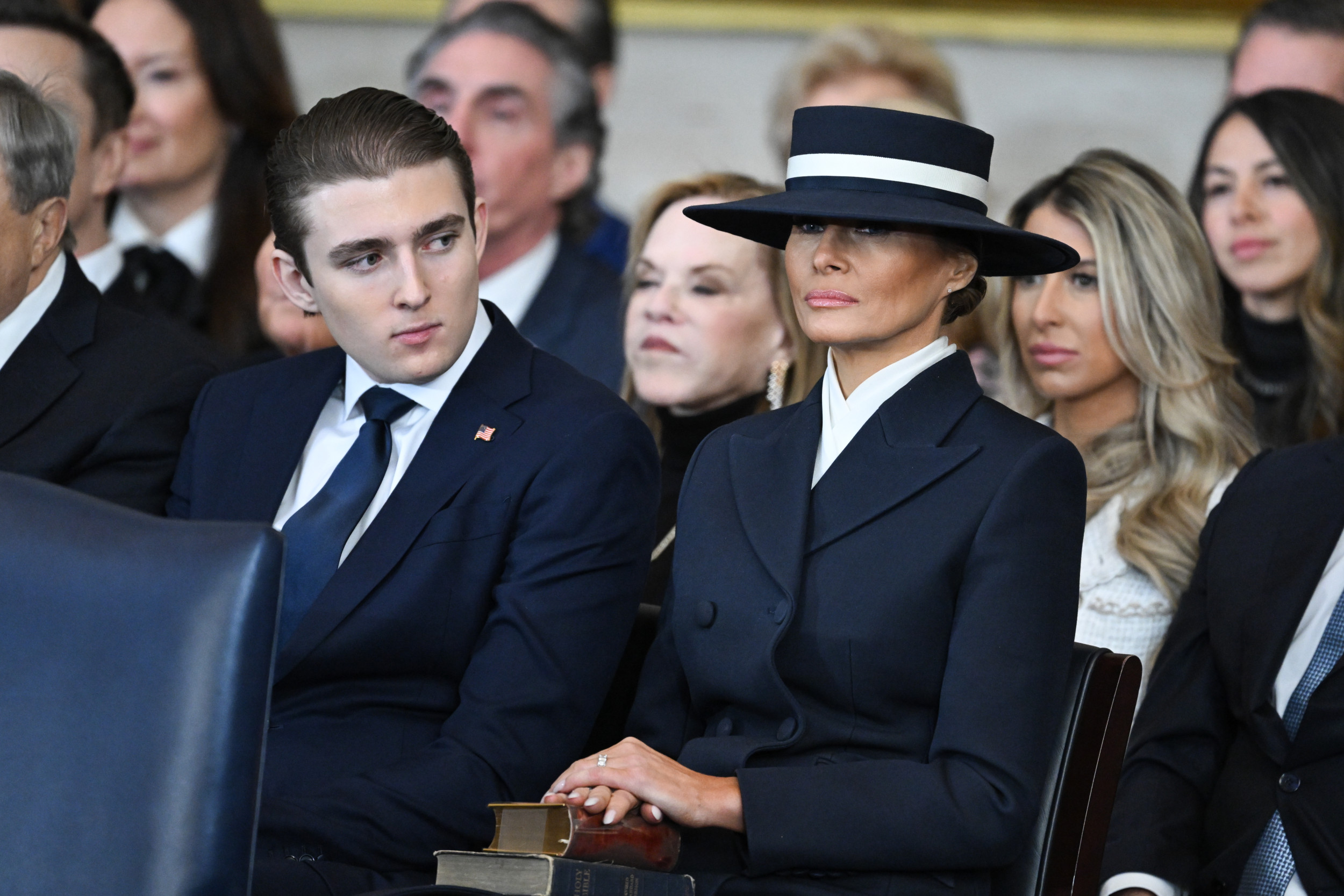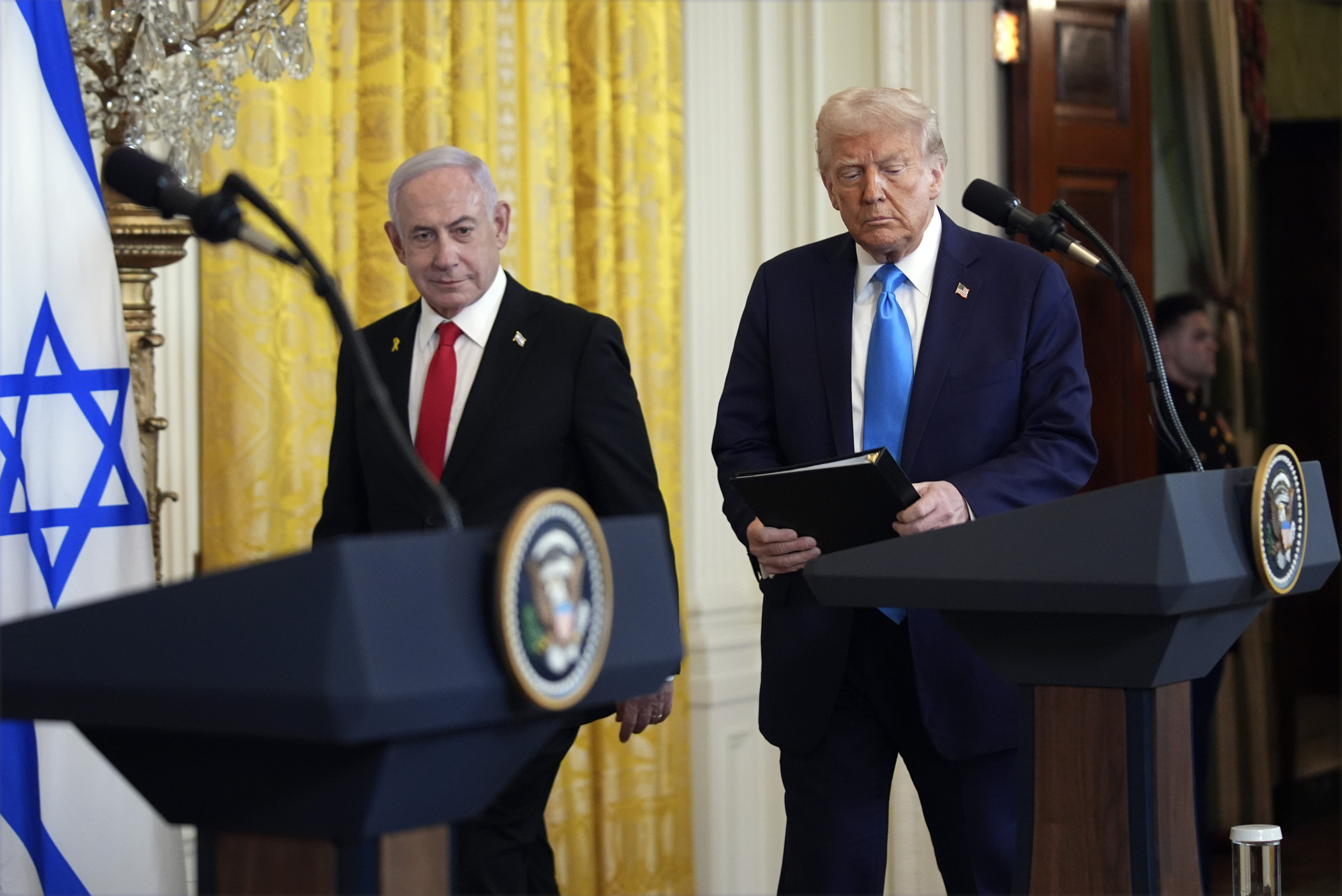🎙️ Voice is AI-generated. Inconsistencies may occur.
Democratic Senator Ed Markey wants complete tariff exemption for the United States' 34 million small businesses, warning that actions by the Trump administration pose an "existential threat" to their futures.
Why It Matters
President Donald Trump swept into office in November largely on the back of voters' economic worries. His tariffs and economic policy have been heavily criticized by Democrats and some members of his own party.
Amid the turmoil, the president's poll numbers on the economy have slipped as consumers have gotten more nervous about rising costs of living and the potential for a recession. As Trump's approval numbers slump, he could lose some of the political clout he carried with him into office and Democrats, like Markey, could seize on the issue as 2026 midterms get closer.

What To Know
Markey, a ranking member of the Committee on Small Business and Entrepreneurship, wrote a letter on Friday, imploring the Trump administration to "save small businesses from catastrophe" before they potentially go out of business, as larger, better-financed corporate competitors take larger claims.
Small businesses are generally defined as those with 500 employees or fewer.
"President Trump's whipsaw tariff announcements have created chaos and uncertainty for America's 34 million small business owners," Markey told Newsweek on Friday. "The administration has not announced any policy or provided any assistance to small business owners who are footing the bill for these higher tariffs.
"Small businesses should not have to stand in the back of the line while big businesses lobby for tariff exemptions. These tariffs are a disaster for the entire country and especially small businesses, but if the President insists on moving ahead down this reckless and destructive path, it only seems fair that he extend the same exemptions he's granting to hi-tech behemoths to the small businesses that drive our economy."
The letter was addressed to Kelly Loeffler, administrator of the Small Business Administration (SBA), U.S. Commerce Secretary Howard Lutnick, and U.S. Trade Representative Jamieson Greer.
"Failure to protect small businesses will mean countless shuttered doors and empty storefronts on every Main Street across the United States," the Massachusetts senator wrote. "It will mean that entrepreneurs who have dedicated their entire lives to building a business from the ground up will see their work needlessly undone through no fault of their own.
"And it will mean that far too many of the 59 million workers employed by small businesses will find themselves out of a job."
The senator added: "America's small enterprises are too important to local communities to be allowed to fail because of this administration's poorly conceived trade policies. If the Administration insists on moving forward with these tariffs, it must recognize the existential threat they pose to millions of small businesses."
Newsweek reached out for comment to Markey and his committee, SBA, the Commerce Department and the Office of the United States Representative.
Markey says that Trump's April 9 decision to pause all reciprocal tariffs for 90 days, except on China, "provides little relief" to small businesses that don't know what to expect in the coming months.
"Small businesses are the lifeblood of the American economy, but because they operate on razor-thin margins, they are uniquely vulnerable to rising costs caused by the Trump tariffs," Markey wrote. "These businesses simply do not have the financial cushion to absorb price shocks or the resources to navigate sudden changes to an already complex supply chain."
Small Business for America's Future, a national coalition of business owners and leaders, conducted a survey of about 500 small business owners between March 7 and March 12. That was before higher tariffs were levied on China, and prior to Trump issuing tariffs on nearly every country worldwide.
They found that 63 percent of small business owner respondents believe the American economy is on the wrong track, and that 60 percent strongly agree that "the rapid announcements, implementations, and postponements of tariff policies create a 'whiplash effect' that makes it difficult for my business to plan effectively."
Another 66 percent said tariffs are "mostly hurting the U.S. economy," while just 16 percent see them as "mostly helping." Another 51 percent said business decisions are being put on hold due to economic uncertainties.
About 78 percent of owners surveyed expected cost increases for imported materials and goods, with more than 7-in-10 owners anticipating raising prices for consumers to offset costs.
Trump "moved too quickly and overreached with his policy changes," according to 69 percent of respondents.
In late March, due to anxieties over tariffs and inflation, the consumer confidence index fell 7.2 points to 92.9, the fourth straight monthly decline and its lowest reading since January of 2021, according to the Associated Press.
The measure of Americans' short-term expectations for income, business and the job market also fell 9.6 points to 65.2—the lowest reading in 12 years and below the threshold of 80, which could spark a potential recession.
The NFIB (National Federation of Independent Business) Small Business Optimism Index declined by 3.3 points in March to 97.4, falling below the 51-year average of 98. The Uncertainty Index decreased eight points from February's second highest reading to 96.
What People Are Saying
NFIB Chief Economist Bill Dunkelberg: "The implementation of new policy priorities has heightened the level of uncertainty among small business owners over the past few months. Small business owners have scaled back expectations on sales growth as they better understand how these rearrangements might impact them."
JPMorgan Chase CEO Jamie Dimon, in his annual letter released after the tariff announcement: "The recent tariffs will likely increase inflation and are causing many to consider a greater probability of a recession. And even with the recent decline in market values, prices remain relatively high. These significant and somewhat unprecedented forces cause us to remain very cautious."
What Happens Next
More than 90 countries have expressed interest in negotiating deals to avoid tariffs, Trump said. The 90-day pause currently in effect could also change, added the president.
Update 4/25/25, 4:50 p.m. ET: This story was updated with comment from Senator Ed Markey.
fairness meter
About the writer
Nick Mordowanec is a Newsweek investigative reporter based in Michigan. His focus includes U.S. and international politics and policies, immigration, ... Read more




